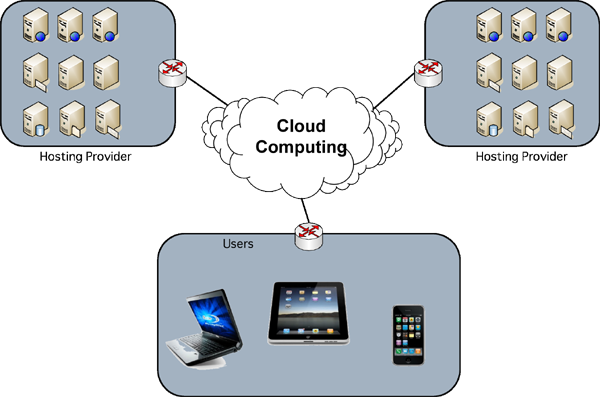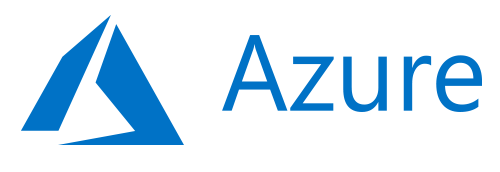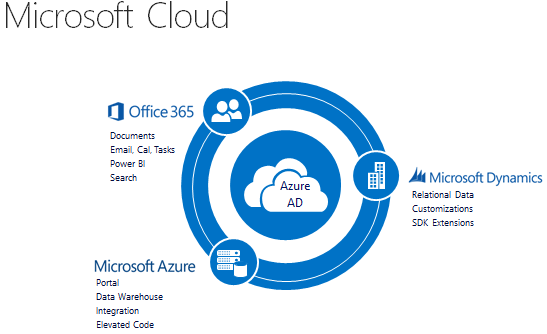Commercial Examples

There are countless small and large commercial companies offering Cloud Services. Some do not offer the same services or the same level of service (especially Security), some specialize in one or more niche areas, and while still others call themselves Cloud Providers but are really only Data Centers renting servers. Most of the companies in this latter category are small and are popular with the hacker community. Choosing the right Cloud Service Provider is not an easy task. Remembering that the customer is always responsible for information security, choosing a large Cloud Provider with extensive service experience, responsive technical help and a clear understanding of individual requirements, is probably the best choice.
Large public Cloud Service Providers offer businesses a broad and deep set of capabilities with global coverage, on-demand computing resources (computer power, database storage, application, back up and recovery. These providers can be differentiated by their offerings and serve different types of user needs.
Many businesses use multiple platforms to get the best of specific services, and to spread their risk and dependencies with a multi-cloud approach. A non-inclusive list of the major, commercial large-market Cloud Computing Service Providers with a brief description of their offerings includes the following.
Amazon

Amazon offers its Elastic Compute Cloud (EC2) Web Services with unique expandable provisioning to scale customer-developed applications. Amazon Web Services (AWS) is the largest and most comprehensive cloud provider in the world. Available services include: cloud computing; vast storage capacity; backup capabilities; and software offerings like DevOps, interactive data query service using standard SQL, QuickSight business intelligence (BI) service, etc. AWS's primary audience is "the builders": developers, programmers, and architects who already have a full understanding and reliance on AWS for their building needs. AWS is innovative and offers new cloud tools constantly with the most recent being IoT analytics and support for blockchain.

Microsoft
The Microsoft Cloud Platform offers the full set of Microsoft systems in the cloud including the Azure Active Directory and server system, Microsoft Dynamics database applications, and Office 365 end-user office applications. These provide a complete substitute for an on-premises Windows IT environment.

Microsoft Azure offers full on-demand cloud computing service and deploys and manages applications and related services on a global network of servers. Full Cloud Service includes SaaS, PaaS, and IaaS. Available Microsoft framework and tools include Microsoft specific software (a suite of universally used software) and other third-party software. This offering ensures that customers are able to obtain licenses and support for most commercial software, as well as obtain software and SaaS solutions that are pre-integrated with Azure. Additional capabilities include Application and Storage Services integration with Azure Active Directory (Azure AD) and Representational State Transfer (REST) for storing and accessing data on the cloud, Web Site Hosting, Data Managing, Messaging services, and Azure Stack.

Google offers a platform for the Google suite of web applications and web document storage optimized for their Chrome web operating system. Google Cloud Platform offers a suite of cloud computing services that runs on the same infrastructure that Google uses internally for its end-user products (e.g. Google Search, YouTube). Virtual Machines (VM's) provide a wide range of computing options. The available Kubernetes Engine and Google App Engine, a flexible fully-managed PaaS allow the user to focus on rapid user application development and not on operational details of deployment and infrastructure management. The Google Cloud Platform is a leader in the many aspects of Artificial Intelligence (AI) and Machine Learning (MLPerf).

IBM
IBM Cloud combines all of its cloud offerings, like Watson, BlueMix and SoftLayer, into a single brand which includes SaaS, PaaS, IaaS in addition to compute, network, storage, management, security, analytics, mobile, developer, and migration. In contrast to the AWS "builders" approach, IBM presents itself not as a cloud but as an entity built for your business, designed for your data, and secure to the core" This orientation provides business leaders, who are unsure of the technical aspects and reasons for migration to the cloud, with something tangible, sensible and built for the enterprise. Helping businesses with the cloud includes support with understanding and application of innovation: big data, blockchain, IoT and more.
With its background in legacy mainframe computers and data centers, IBM was slow to recognize and invest in global cloud infrastructures and its offerings have not been competitive with AWS and Azure.

Oracle
The software giant offers its own SaaS, PaaS and IaaS software, including middleware, database, Java, security and identity-management services that enable integrating legacy systems with cloud systems. Oracle is primarily basing its Cloud Service on its successful and widely used database business used by many businesses to run critical operations. While Oracle is facing stiff competition from AWSs use of Oracle's SQL database offering, many businesses find Oracle's cloud, with native SQL knowledge and lower licensing prices, an easy option. But Oracle has a steep climb to go to build a full-service Cloud Service reputation.

Backblaze
Backblaze is also an IaaS provider who provides unlimited cloud storage to its customers at a low cost. This pricing illustrates both the competitive pressures on cloud service providers and the benefits to customers of these services. In order to achieve its pricing strategy, Backblaze designs and builds its own storage systems, which provides them with a competitive advantage over other storage providers who depend on expensive commercial products.
Continue with the Technologies.







